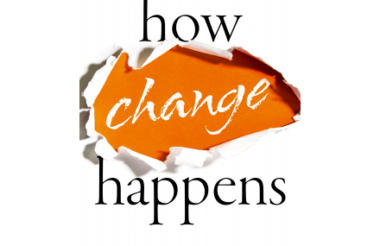The author of a new, free book on advocacy and campaigning has said that he is sceptical of charities who seek to “speak truth to power” and called on campaigning charities to focus on the message, not the messenger.
Speaking to Civil Society News yesterday about the launch of his new book How Change Happens, Dr Duncan Green, senior strategic adviser at Oxfam, said that charities who claim to “speak truth to power” are often displaying signs of “kamikaze bravery”.
“There’s different ways of showing and seeing bravery. One form of bravery is ‘kamikaze’ bravery where you just go into battle against everybody and speak truth to power, and that’s a heroic stance,” said Green. “I’m a bit sceptical of that. I can see certain times where that might work, but an awful lot of times it doesn’t work, because power is power and if you just speak truth to it, power doesn’t care that much.”
He said that instead of “kamikaze bravery”, advocacy groups and charities alike should seek to find compromises and solutions with other groups, even if they don’t necessarily feel comfortable working with them. That, he said, was “a different kind of bravery”.
“It’s about finding out who your friends are, because if you look properly you’ll find that there are plenty of friends around in unexpected places.”
‘Advocates tend to think a lot about the message and not about the messenger’
Green, who alongside his work with Oxfam is also a professor in practice at the London School of Economics, also said that campaigning charities often focus too much on themselves and not enough on what they’re actually trying to change.
“Advocates tend to think a lot about the message and not about the messenger. Often in advocacy the thing that really discerns whether your exercise is successful is as much about finding the messenger as it is about finding the message.”
When asked how some of the findings in his new book could help the wider sector in defending itself from outside criticism, Green said: “If you’re trying to stop bad stuff happening, it’s very important to make the most of shocks, scandals and crises. One of the lessons from the book is that changes in systems are often spikey, they’re rarely smooth and those spikes are both windows of opportunity and threats.”
Latest book ‘field guide to social activism’
Green’s latest book How Change Happens is described as a “field guide to social activism”, and draws on the author’s more than 35 years’ worth of experience in the sector.
The book suggests that campaigning and advocacy groups are hamstringing their efforts to create social change through “an over-reliance on linear campaign models”. Green instead calls for “an agile approach that can adapt quickly to new developments in the external ‘ecosystem’”.
The book was published yesterday, and can be downloaded for free here.
Related Articles












